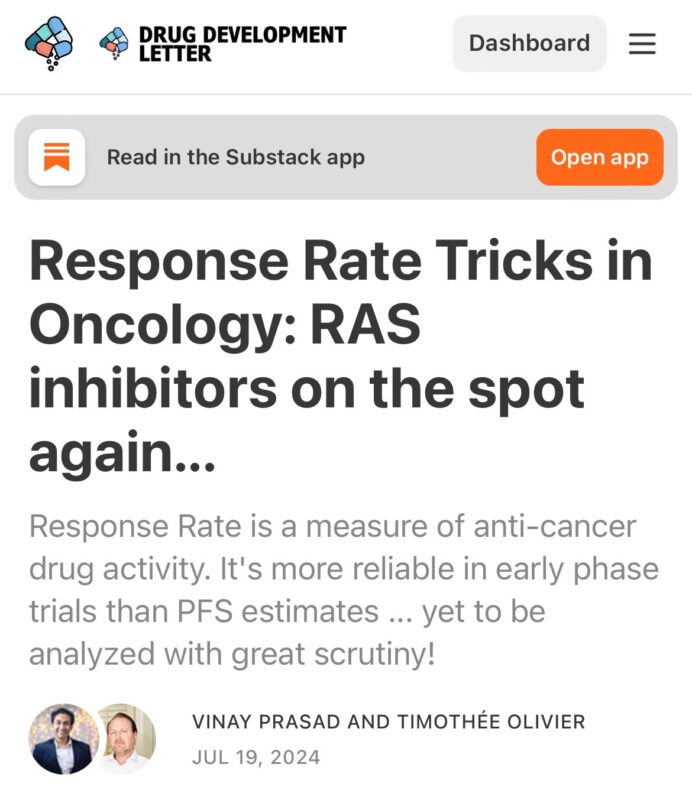Timothée Olivier, Medical Oncologist at HUG – Geneva University Hospitals, shared his previous post on X, adding:
”Want to take a small break before returning to Biden’s resignation news? Have a look at our analysis of interim data of early phase results from novel RAS inhibitor in pancreatic cancer.”

Quoting Timothée Olivier’s previous post:
”RAS inhibitor in pancreas cancer.
These early phase data have raised enthusiasm (RMC-6236). Of course, everyone wants true progress for patients with metastatic pancreatic cancer. However, we have an alternate interpretation with Vinay Prasad. Read further.
Selection bias: PFS estimates from early phase studies often represent selection bias: healthier patients and those with more indolent disease biology are more likely to be enrolled… Don’t be misled by PFS estimates from early phase studies.
Response Rate (RR) may better capture drugs activity, which means its ability to shrink tumours… Here they provides different RR estimates and compare them to benchmark studies, to conclude they fare better as compared to ‘benchmark’ data…
However:
- ORR 14 and 20 weeks exclude many patients (to allow 2 or 3 potential scans) by decreasing the denominator, this is artificially increasing RR!
Let’s do the calculation again:
- 127 patients included,
- Only 92 displayed on the waterfall plot,
- 5 not displayed ‘due to lack of past-baselin target lesion assessment,
- 5 have unconfirmed response.
ORR drops down to… 13%! (not far from 9% ‘benchmark’?)
Concluding thoughts:
- Don’t be fooled by PFS estimates in early phase trials.
- Check for the real denominator for RR.
- Check for unconfirmed responses.
- RR can decrease from early to later phase trials.
Source: Timothée Olivier/X


